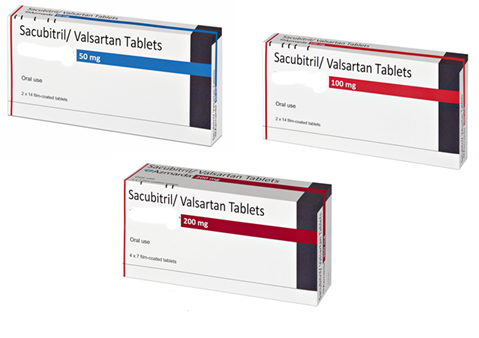Newly FDA Approved Drug: Sacubitril-Valsartan improves outcomes for patients with acute heart illness.
Source: Yale University Nov 12, 2018 7 years, 1 month, 2 weeks, 5 days, 20 hours, 1 minute ago
A drug therapy used for patients with chronic heart failure also improves markers of poor prognosis in individuals who are hospitalized with acute heart failure, new Yale-led research shows. The findings suggest that the drug can improve outcomes for acutely ill heart patients and potentially become the new standard of care for treating this serious condition, the researchers said.
The study was published in the
New England Journal of Medicine, and presented at the American Heart Association Scientific Sessions in Chicago on Nov. 11, 2018.
Acute heart failure, a condition in which the heart fails to pump blood efficiently, is the leading cause of hospitalizations for older adults. Affected individuals experience high rates of re-hospitalization and death. The standard of care, which consists of diuretics and medications that enhance blood flow, has remained largely unchanged for decades.
To test whether the FDA-approved drug sacubitril-valsartan could improve outcomes for individuals with acute heart failure, the research team conducted a randomized, double-blind clinical trial called PIONEER-HF. More than 800 patients hospitalized with heart failure at 129 U.S. sites were treated with either sacubitril-valsartan or the standard therapy, enalapril, an ACE inhibitor. Over the trial period of eight weeks, the researchers monitored participants' blood pressure and other safety parameters, such as kidney function, and analyzed blood and urine samples.
The research team found that in patients taking sacubitril-valsartan, levels of a key measure of heart failure severity—NT-proBNP—reduced more quickly than with the standard therapy. Evidence of improvement was observed as early as one week into the trial, they said.
"It worked to reduce NT-proBNP rapidly and to a greater extent than enalapril," said corresponding author Eric Velazquez, M.D., the Berliner Professor of
Cardiology at Yale School of Medicine and PIONEER-HF principal study investigator. "There were multiple markers including troponin T, a marker of heart cell injury, that suggested substantial improvement."
Velazquez and his co-authors also reported no significant differences between the two therapies in terms of safety, including impact on renal function, blood pressure, and other indicators. "The results of this landmark study should help inform our basic approach to treating hospitalized patients with acute heart failure," said Velazquez. "Once acute heart failure is diagnosed, patients are stabilized, and a low ejection fraction is confirmed, sacubitril/valsartan should be started promptly to reduce NT-proBNP and reduce the risk of post-discharge heart failure hospitalization."
Combined with results of a previous trial, PARADIGM-HF, which showed the drug's effectiveness for patients with chronic heart failure, these findings could make sacubitril-valsartan the go-to standard of care for acute and chronic heart failure,said the researchers.
"There are consistent results from both trials," Velazquez said. "It is safe and there's a rapid outcome. If it becomes the standard, we are likely to reduce the
risk of hospitalization for heart failure, and that will have a positive clinical impact and societal impact."
Reference: Eric J. Velazquez et al, Angiotensin–Neprilysin Inhibition in Acute Decompensated Heart Failure, New England Journal of Medicine (2018). DOI: 10.1056/NEJMoa1812851
